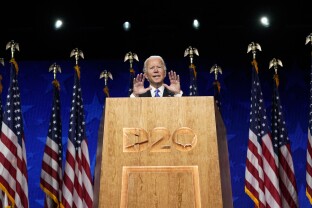The increasingly open question of whether Joe Biden will be the Democratic nominee is creating new chaos regarding when Democrats will nominate their presidential candidate.
Weeks before Biden’s ill-fated debate performance, party leaders were trying to lock in Biden at the top of the ticket in order to combat GOP efforts to exclude Biden from ballots in Ohio. But now, with new questions about Biden remaining at the top of the ticket, delegates and DNC voters told NOTUS they are in the dark about the schedule.
Typically, the nomination would take place at the convention. But with the convention taking place after Ohio’s state ballot deadline, Democrats agreed to set up a “virtual roll call vote” to settle on their nominee and get on the ballot.
